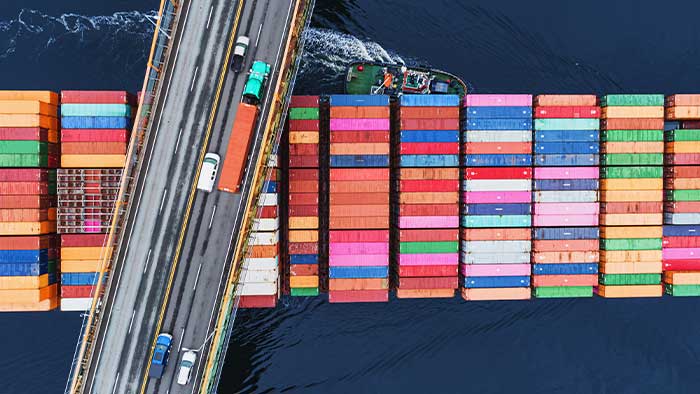House Hearing Nibbles at Edges of Supply Chain Disruption
- By [ Jess Dankert ]
- 11/22/2021
Many committee members and witnesses referenced upcoming infrastructure investments from the recent passage of the Infrastructure Investment & Jobs Act, though little detail was discussed about what investments are critical, and how priorities should be determined. As heavy users of our nation’s infrastructure, RILA welcomed this much-needed boost to modernize our ports, roads, and highways, which will allow retailers to innovate and invest in more effective and sustainable means to deliver goods to families across the country. However, we have long asserted that infrastructure funds alone are not enough—funds must be effectively targeted, focused on smart modernization, and that major users of transportation infrastructure must have a voice in helping prioritize investments.
Several speakers—especially Port of Long Beach Executive Director Mario Cordero—commented on the need to migrate ports and the broader supply chain to a 24/7 model. The industry largely agrees that 24/7 is needed, however in the near term it’s at least as important to maximize the effective use of existing gate hours. Rep. Eleanor Holmes Norton (D-DC) highlighted the absolute necessity of addressing the broken system of appointments and empty container return—a critical element of tackling the current disruption.

Lastly, several speakers underscored the need for metrics and data sharing to enable visibility across the supply chain. Dr. David Corell of MIT shared insightful research on improving truck freight flows, illustrating that to improve you must first be able to measure. RILA continues to advocate for investment in data infrastructure, and common standards for interoperability that are necessary for today’s supply chains. As Executive Director Cordero stated, “digital transformation will be very important.” To best understand and address supply chain challenges, it is critical to be able to measure the freight fluidity of our transportation networks.
Ultimately, the hearing underscored the fact that the current disruption and the supply chain ecosystem are extremely complex. While no simple answers exist, some essential steps are clear: targeted investment for infrastructure modernization, addressing systemic operational challenges in major U.S. ports, and enabling data sharing and interoperability to facilitate end-to-end visibility.
RILA will be discussing these supply chain challenges and more at our upcoming LINK2022: The Retail Supply Chain Conference. Don’t miss the opportunity to join us in Dallas February 20-23 to explore solutions and shape the future of retail supply chains with industry peers and experts.
Tags
-
Transportation and Infrastructure
-
Supply Chain
-
Public Policy
-
Building Communities
-
Retail Works for All of Us



